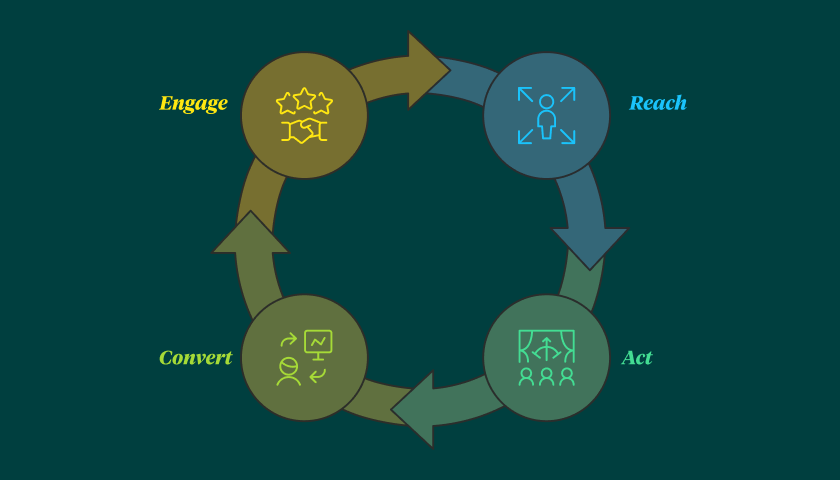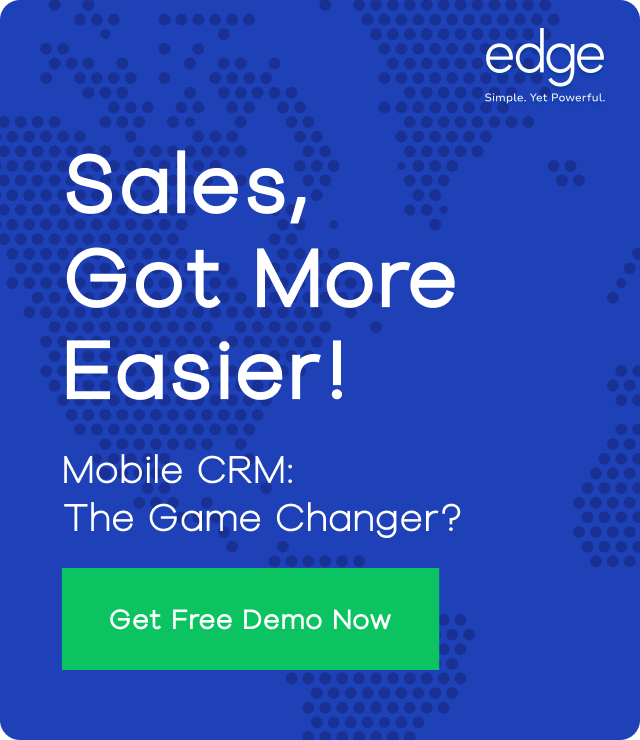by Kadambari Bendre
5 minutes
What Is The Importance Of Digital Marketing For The Pharmaceutical Sector? How To Create An Effective Digital Marketing Strategy?
Discover how digital marketing can drive growth in pharma by leveraging online strategies to effectively reach and engage customers.
20250607154641.webp)
Image Source: @Klawe Rzeczy
If you follow marketing trends, you’ve likely noticed how many industries advance their digital marketing efforts while large pharma companies lag. This slow adaptation makes established companies vulnerable to disruption by agile startups and tech-savvy competitors.
Consumers, patients, and healthcare providers increasingly use online platforms for research and purchasing, pushing pharma companies to shift from traditional B2B sales to a more competitive direct-to-consumer model.
Digital marketing provides strategies and tools for precise customer engagement. This article explores the importance of a solid digital marketing strategy for the pharmaceutical sector in the evolving healthcare industry.
Dive in to learn more!
What Is Digital Marketing In The Pharmaceutical Industry?
Simply put, pharmaceutical digital marketing is all about the strategies & technologies utilised to promote the products & services to the target audience across multiple online channels. It provides excellent opportunities for pharmaceutical brands to implement cost-effective marketing strategies to build a connection between healthcare providers and customers.
Pharmaceutical companies lag behind other industries in providing a digital customer experience. And to fill the gap and fulfil the expectations of today's customers, digital marketing is significant!
Dissimilar to regular marketing, which simply involves promoting the products or services, pharmaceutical digital marketing is the specialised skill of persuading stakeholders, primarily healthcare professionals such as patients, pharmacists, doctors, etc.
Moreover, pharma marketing is unique because it simplifies intricate medical terminology into everyday language that is easily understandable, enabling the general people to make informed purchasing decisions! Essentially, this type of marketing is built on a foundation of trust, given that its products directly impact human health.
Read More: Innovative Applications Of Artificial Intelligence In Drug Discovery, Its Benefits & Challenges
What Is The Necessity For Pharmaceutical Companies To Have A Marketing Strategy?
Pharmaceutical companies play a significant role in bolstering the healthcare sector and treating patients with care! Without their support and supervision, it's hard to envision how healthcare services and patients grappling with diverse illnesses would fare.
When discussing the importance of the pharmaceutical industry's commercial worth, marketing emerges as an indispensable factor!
Effective and successful marketing is closely linked with the financial success of a pharmaceutical company. These specifics make it necessary to talk about why pharmaceutical sectors must invest in having a planned marketing strategy.
Here are some fundamental reasons pharmaceutical companies must create and implement a marketing strategy!
- Build A Solid Reputation In Their Industry
- Expand Into New Markets As Well As Geographical Regions
- To Gain Successful Market Shares
- Retain Existing Consumers And Connect/Engage With New Customers
How To Create An Effective Digital Marketing Strategy?
Here are a few typical ways To implement a digital marketing strategy. Check it out!
a) SEO or Search Engine Optimization — SEO in pharma marketing involves optimising your content to improve its ranking in the SERPs (Search Engine Results Pages). By following established SEO practices, pharma companies can connect better with their potential customers through major search engines.
b) Content Marketing — Content marketing uses different media platforms to target prospective clients! Creating high-quality content & publishing them regularly helps boost their search rankings, increase traffic to the website, and build strong relationships with the audience.

c) SMM or Social Media Marketing — Social media marketing encompasses using social media platforms to communicate company messages and reach customers. Companies using these strategies effectively can engage with clients directly on their preferred social networks.
d) Email Marketing — This strategy aims to foster customer connections or boost interaction with an existing or potential audience. As digital media usage continues, email marketing has emerged as a potent tool with a proven history of success.
e) Pay-Per-Click Advertising (PPC) — PPC advertising, a subset of digital marketing, involves companies placing ads on external or third-party websites to enhance their online visibility.
Well, you must understand that PPC advertising is quite different from other advertising techniques, and businesses are charged only when users actively engage by clicking the ad links.
Read This: Mobile Marketing In Pharma: Reaching Customers On Their Mobile Devices
Build A Digital Marketing Strategy Using “RACE Framework”!

Race is equal to - Reach, Act, Convert & Engage! As you step up crafting your marketing strategy, it's crucial to understand the fundamental steps to kick off! The RACE framework in digital marketing offers a solid foundation to begin your journey. Let's check it out!
1. REACH
This initial stage involves building connections with a new audience through your company's website or social media platforms. You must be able to engage with the people to spread the word about your company. Rather than relying on the consumers to seek out your medication online, engaging with them and addressing their needs proactively is essential!
One of the most significant ways to connect with healthcare customers is via campaign-specific marketing tools utilised at different stages of their buying journey. It helps drive more & more leads and increase revenue while delivering a seamless customer experience.
2. ACT
The second stage involves utilising various interactive tools like blogs, social media, websites, etc., to spark healthy conversation. Healthcare firms get this opportunity to deliver precise information to their customers at the right time. Online platforms also give them a platform to burst myths & prevent the spreading of wrong information.
Therefore, communication is crucial in the healthcare industry. Plus, incorporating the dissemination of trustworthy and valuable information across various platforms should be included in the digital marketing strategy for pharmaceutical companies as it can be highly impactful.
3. CONVERT
When your lead finally buys your product, you've successfully converted them into paying customers! To reach this stage, you need to understand the requirements of your target market and their position in the buying process!
Once done, implement strategies to motivate them to take definitive steps towards purchasing. E-commerce platforms and product advertising are crucial for making your customers pay!
As a business owner, understanding marketers' needs allows you to effectively utilise account-based marketing strategies or e-commerce platforms to meet those needs.
4. ENGAGE
Customer engagement is a deliberate and ongoing approach businesses use to enhance every client interaction, fostering greater loyalty. It involves developing a relationship beyond mere transactions between the company and the customer.
The pharmaceutical industry is highly competitive, demanding effective communication between businesses and customers! This practice is crucial for setting goals and objectives related to customer retention.
It's essential to be transparent and proactive in sharing any changes or developments in the healthcare sector. Providing updates and information through direct mail, emails, webinars, and other channels can help retain clients.
Key Future Digital Trends Shaping Pharma Marketing
Pharma marketing is changing fast, and 2025 will bring even more updates. New digital trends will help companies reach healthcare professionals (HCPs) more effectively and share content that truly matters to them.
Here are the key future digital trends that are shaping pharma marketing in the modern world!
1. Personalized Medicine & Precision-Based Targeting
The era of one-size-fits-all treatments is coming to an end, as personalized medicine transforms the way pharmaceutical companies approach marketing. By tailoring treatments based on a person’s genetics, lifestyle, and medical history, brands can deliver more meaningful and relevant messages.
This shift allows companies to connect with patients and healthcare professionals on a deeper level, leading to better engagement and improved outcomes. Industry leaders like Roche and Bristol Myers Squibb are already embracing this change.
By using genetic testing and AI-driven insights, they ensure that treatments are targeted to the right patients at the right time. This not only improves the effectiveness of therapies but also enhances how they are marketed.
For pharma marketing, this evolution means a move toward highly personalized campaigns. Instead of broad messaging, companies can segment audiences based on specific health factors and tailor their communication accordingly. Drug launches are now more focused, aiming at smaller, well-defined groups rather than mass markets.
Additionally, digital tools and campaigns play a key role in educating patients about personalized treatments, helping build trust and encouraging better adherence. With breakthrough drugs like Keytruda and Humira setting the standard, pharma companies are reshaping their strategies to meet the growing demand for precision-based care.
2. Omnichannel Strategies For Better HCPs & Patient Interaction
Pharma marketing has evolved beyond traditional advertising and now relies heavily on omnichannel strategies to connect with both healthcare professionals (HCPs) and patients through multiple touchpoints.
These include digital platforms, social media, telemedicine, and in-person interactions, with a focus on delivering consistent and personalized experiences across all channels.
Companies like Merck and AstraZeneca exemplify this approach by using AI-powered content to engage physicians through targeted LinkedIn campaigns, automated email sequences, and interactive medical webinars. Their goal is to reach HCPs wherever they are, whether in clinical settings or researching online.

For patients, omnichannel marketing means providing seamless communication and support. Patients expect pharma brands to offer educational materials, medication guidance, and real-time interactions across apps, websites, and social media platforms. When brands fail to deliver consistent messaging, they risk losing patient trust and engagement.
In order to succeed, pharma marketers must create tailored content for each digital channel, use data analytics to adjust messaging based on audience response, integrate telehealth services and digital assistants for better patient support, and maintain compliance while keeping a human-centered focus.
Omnichannel strategies help bridge the gap between pharma companies, HCPs, and patients, building strong, lasting relationships that encourage loyalty.
3. Artificial Intelligence & Data Analytics
Artificial intelligence (AI) has totally changed the way marketing works in every industry today. Using machine learning and big data analytics, pharma companies can forecast market trends, improve drug development, and create highly personalized marketing campaigns.
AI tools like chatbots, predictive models, and automated sales representatives are changing how pharma companies engage with healthcare professionals (HCPs) and support patients.
Big data analytics help identify prescribing habits, understand patient behavior, and guide content strategies. Companies such as Pfizer and Novartis use AI to enhance their marketing efforts and commercialize drugs more effectively.
Think of AI in Pharma Marketing and Operations as a crystal ball that not only shows current trends but also predicts what’s coming next in pharma marketing.
AI-powered tools can analyze patient data to customize drug promotions, use behavioral insights to improve HCP marketing, automate the monitoring of regulatory compliance, and boost sales team performance with smart recommendations. Pharma marketers who adopt AI will gain a strong advantage in a fast-paced industry where accuracy and speed are essential.
4. Regulatory Challenges & Compliance Issues
As pharma marketing shifts more towards digital platforms, compliance has become increasingly complicated. Regulatory agencies like the FDA and EMA have strict rules to make sure pharmaceutical companies market their products honestly and ethically.
The rise of social media and digital marketing has created new challenges because activities like influencer marketing, promoting real-world evidence, and sharing patient-generated content can carry legal risks.
To address these issues, pharma marketers need to focus on transparency in their digital campaigns to meet FDA requirements. They can also use AI tools for regulatory compliance to monitor and manage promotional materials effectively.
It’s important for brand teams to stay informed about changing regulations to avoid costly legal problems. Additionally, developing clear and ethical messaging that follows all guidelines is essential to maintain trust and compliance in this digital landscape.
Wrapping It Up!
Everyone knows that digital marketing strategies are helping brands & industries reach their target audience and drive expected results! And the pharmaceutical industry is no different.
An effective digital marketing strategy can help open new windows of opportunity. It can even support overcoming the challenges related to connecting with their audience, educating them about innovations, & much more.
The evolution of tech-savvy consumers has presented pharmaceutical companies with challenges and opportunities. To thrive in the digital era, these companies must engage with their product users via numerous digital platforms.
FAQs
1) What Role Does Social Media Play In Pharmaceutical Digital Marketing?
Social media is vital in pharmaceutical digital marketing, enabling direct engagement with consumers, healthcare professionals, and stakeholders. It facilitates sharing educational content, promoting new products and clinical trials, building trust, monitoring feedback, and conducting targeted advertising to specific demographics, enhancing brand visibility and engagement.
2) How Can Pharma Companies Measure The Success Of Their Digital Marketing Efforts?
Pharma companies can measure digital marketing success through critical metrics like Website Traffic to track visitor behaviour; Engagement Rates to Monitor social media interactions; Conversion Rates to Measure desired actions; Lead Generation to Asses new leads; ROI to Calculate financial returns, and Customer Feedback to Collect satisfaction insights—these metrics guide strategy for effective campaign optimisation and audience engagement.
3) What Are Some Best Practices For Digital Marketing In The Pharmaceutical Industry?
Best practices in pharmaceutical digital marketing are Adhering to compliance guidelines, tailoring content for diverse audiences, Optimizing SEO for visibility, and using data analytics for informed decisions. Engage actively on social media, Provide accurate, valuable information, and Maintain consistent branding across digital channels. These practices enhance visibility, engagement, and trust with stakeholders.
4) What Are The Regulatory Considerations For Digital Marketing In Pharma?
Regulatory considerations in pharma digital marketing include Adherence to FDA and EMA guidelines, transparency in sponsorships, Providing accurate, evidence-supported information, Compliance with GDPR for data privacy, Establishing adverse event reporting mechanisms, and Avoiding off-label promotions. These guidelines safeguard compliance and ethical marketing practices in the pharmaceutical industry.
5) How Can Pharma Companies Effectively Use Data Analytics In Their Digital Marketing Strategies?
Pharma companies leverage data analytics in digital marketing by Analyzing customer behaviour for targeted efforts, Tracking campaign effectiveness, Personalizing messages for audience segments, Using predictive analytics for proactive strategies, Optimizing based on data-driven insights, and Monitoring compliance for regulatory adherence. These practices enhance marketing effectiveness, ROI, and regulatory compliance in the pharmaceutical sector.
6) Why Is Digital Marketing Important In Pharma?
Digital marketing is important in pharma as it helps reach patients and healthcare professionals with targeted, compliant, and cost-effective communication. It boosts brand awareness, supports education, and improves engagement across digital channels.
7) How To Build Trust Digitally In Pharma?
To build trust digitally in pharma, companies should share accurate, educational content, ensure data privacy, and maintain transparency in communication. Engaging responsibly on digital platforms, being consistent with messaging, and prioritizing patient and HCP needs are key to fostering long-term credibility online.
Comment your thoughts
Prem Joshi
nice article
1 year ago




